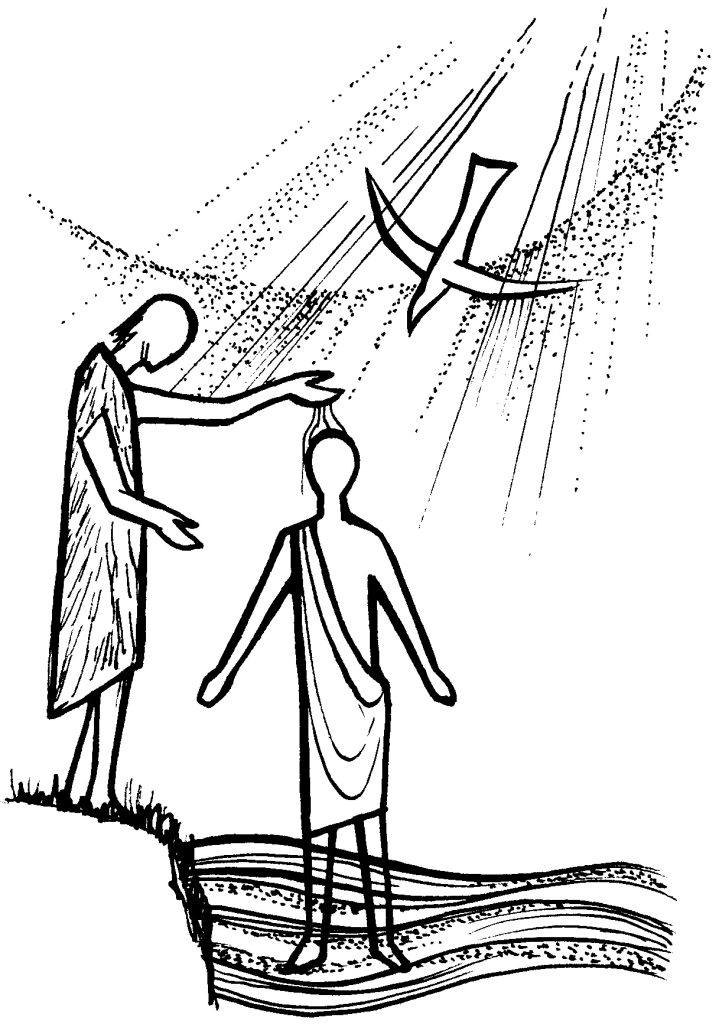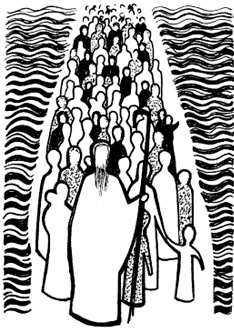Lent 2 2024
Our readings today seem to focus on trusting God even when nothing seems to be happening or we don’t understand the plan. We often use a prayer which contains the phrase ‘God is faithful and just’ in it, but it is not always easy to understand where he is leading us.
In our reading from Romans Paul is writing about faith using the example of Abraham. In the Old Testament reading set for today we read of how Abram and Sarai are given new names and the promise of descendants. It’s worth remembering that they have already travelled from Ur – probably in Iraq via Haran which is in modern day, Turkey through Canaan to Egypt and then back to Canaan. Abraham had received promise of the land of Canaan for his descendants in a vision, but in today’s reading God seems to be more direct. Sarai had no children, which in those days was considered to be a shame, and so she and Abraham had tried ‘help’ God to achieve his promise with Hagar. Although this did result in a son for Abraham, it also caused all sorts of problems for them – which can often be the case when we try to take over from God.
But this time the promise is more specific – that Abraham and Sarah would have a son and many descendants – not just Abraham by another woman. This promise was made not just to Abraham and his direct descendants, but, as Paul points out, to us as those who share his faith. God’s promise is to make him the ‘Father of many nations’.
In our reading from Romans Paul is contrasting faith with adherence to the law using Abraham’s faith as his example – he continued to have faith even though had not yet seen any result of God’s promises. We need to remember that adherence to the law is not relevant at this point in history, as Abraham comes many years before law is given, but it would have been important to those people that Paul was writing to, as many of them would have been Jewish by birth. The promise is given several times over several years before it is actually fulfilled but Abraham’s faith doesn’t seem to waver although Sarah is not always convinced. One occasion she laughed when she heard it, which is why Isaac was given a name that roughly translates as laughter.
Peter, in the passage just before today’s gospel has just made his great declaration that Jesus is the Christ and the son of God. In Matthew’s account of this Jesus tells Peter that this knowledge was given to him by God, and promises to Peter that he will be the rock on which church will be built, and to him will be given the keys of kingdom. And yet very shortly after this great high moment, Jesus is calling him agent of Satan. We have noted before that the disciples always try to stop Jesus when he tells them of what is to happen to him, but Peter goes too far this time. He has gone in short time from making a great declaration of faith to the complete opposite, of knowing better than Jesus.
Jesus then goes on to give the hard challenge to Peter, the disciples and the whole crowd – and by extension to us. Nowadays we have rather glamourised the cross – we wear it as jewellery and as a badge of office and we perhaps forget quite how dreadful this kind of death was, and what Jesus was asking of people and of us when he tells us that we will have to take up our crosses if we want to be his true disciples. Jesus chose to continue towards Jerusalem, and the end that he knew well was waiting for him there. In a sense we could say that it was at about this point in his ministry that he began to take up his cross as he tells us that we will have to. It is also possible that Jesus recognises in Peter’s denial of his coming fate, an echo of the temptations that came to him in the wilderness – a time that we have based the 40 days of this season of Lent on. It is worth remembering that Jesus’ temptations did not end when he returned from the desert to Galilee.
There is a recent modern day example of a similar act that we have been reminded of this week when we have so recently heard of the death of Alexy Navalny, who was such an inspiration to so many in Russia, and who chose – after recovering from being treated for Novichok poisoning – to return to Russia, even though he must have been aware that he was heading back into danger and his possible imprisonment or death.
We have a saying that problems or difficulties that arise in our lives are our cross to bear; often this is used today about ill health or unwanted problems in life, but that is not what Jesus was referring to. Everyone has occasional difficulties in their lives, but this is something very different. Jesus is telling us that we need to be willing to lose our lives for his sake and for the sake of the gospel or as some versions translate it, ‘the kingdom’, and this involves faith.
One of the other readings set for today is the beginning of Hebrews 11, which contains a wonderful definition of faith as ‘the assurance of things hoped for, the conviction of things not seen. (Hebrews 11: 1 NRSV). Here again, Abraham is a good example. He had faith in God and his promises even though they were as yet unfulfilled, and God credited his faith to him as righteousness. But having faith is not something we can claim any credit for as Paul explains in Ephesians; ‘ For by grace you have been saved through faith, and this is not your own doing; it is the gift of God— not the result of works, so that no one may boast.’ (Ephesians 2: 8-9). In a sense we have travelled in a circle – the faith we need is also a gift to us from God through his grace.
So, in essence, being good (keeping the law) will not get us any particular credit with God. After all, there are a great many people who have no faith at all, and yet do amazing amounts of good for others. We are only credited with righteousness by having faith, but that faith is freely given to us by God. Everything is a gift,
Brian Draper in his lent reflections: The Desert will Bloom #4 – The way of Jesus quoted an on-line post by Dan Sadler which sums it all up quite well:
‘Walk in confidence (for there’s nothing you can do to lose the love of God).’ And, ‘Walk in humility (for there’s nothing you can do to earn it).’
Copyright acknowledgements: The New Revised Standard Version (Anglicized Edition), copyright 1989, 1995
The Desert shall Bloom copyright Brian Draper


